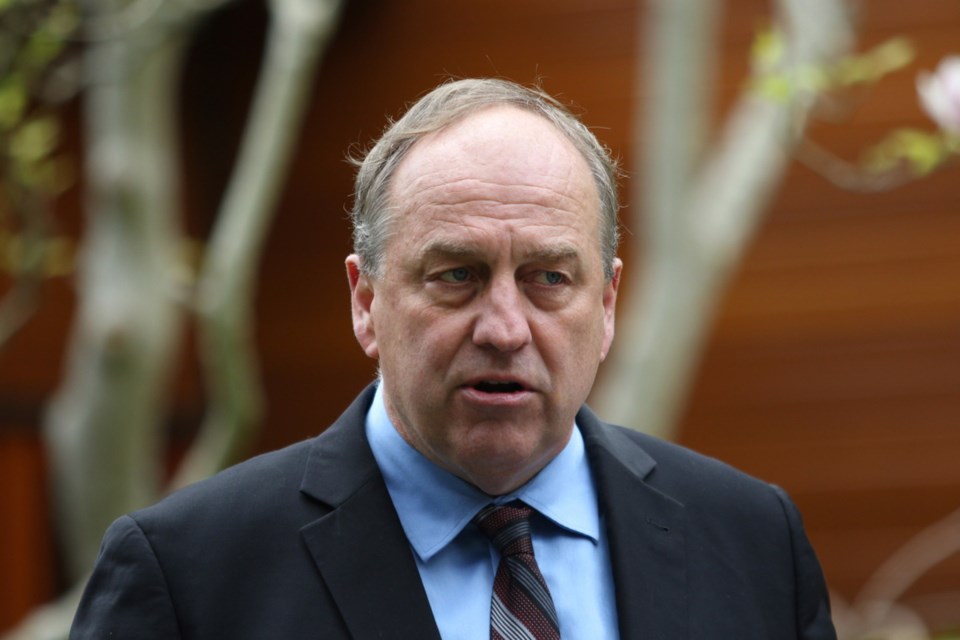A climate-change denier’s article critical of B.C. Green Party Leader Andrew Weaver was so “poorly written” and lacking in credibility that it cannot be considered defamatory, a B.C. Supreme Court judge has ruled.
The author of the article and his supporters are calling the ruling a victory for free speech.
Tuesday’s decision by Justice Ronald Skolrood dismisses Weaver’s 2011 lawsuit against Timothy Ball, a retired professor of geography at the University of Winnipeg and vocal global-warming skeptic.
Weaver, the former Canada Research Chair in climate modelling and analysis at the University of Victoria, alleged that Ball libelled him in a January 2011 article published on the conservative website Canada Free Press.
Weaver claimed the article implied that he was incompetent and unqualified to teach climate science at the university level and that he cheated Canadian taxpayers by accepting public funds for climate-science research.
Skolrood found that while the article is “derogatory,” “it is not defamatory, in that the impugned words do not genuinely threaten Dr. Weaver’s reputation in the minds of reasonably thoughtful and informed readers.”
Ball’s article was “rife with errors and inaccuracies” that showed a lack of attention to detail and an indifference to the truth, Skolrood wrote.
The “article is poorly written and does not advance credible arguments in favour of Dr. Ball’s theory about the corruption of climate science. Simply put, a reasonably thoughtful and informed person who reads the article is unlikely to place any stock in Dr. Ball’s views, including his views of Dr. Weaver as a supporter of conventional climate science,” Skolrood wrote.
Ball’s words “lack a sufficient air of credibility to make them believable and therefore potentially defamatory,” the judgment concluded.
Ball, who now lives in Greater Victoria, said he’s elated with the decision.
“In my opinion, the lawsuit was brought to silence me. I think that’s a total misuse of the law and I’m glad the courts recognize that,” he said. “This whole idea of suing individuals or suing publications to me is such a chill on free speech and expression of opinion. That’s why I think this ruling is so important, not just to me but to the media and society in general.”
Ball said despite the ruling in his favour, he’s frustrated that Skolrood saw fit to judge the quality of his argument in the article.
Skolrood opened the trial by saying he did not intend to weigh in on the global-warming debate, Ball said.
“Yet here he’s passing judgment on the quality of my article on something he knows nothing about.”
News that the lawsuit was dismissed was shared on climate-change denial blogs such as Watts Up With That, which declared the ruling a “free speech victory.”
Weaver’s lawyer, Roger McConchie, said he intends to appeal the ruling, which he called “a bit of a conundrum.”
“The only real finding in the judgment is that it didn’t defame Dr. Weaver and it’s a little puzzling because the defendants themselves admitted in their defence that they did defame him,” McConchie said.
Weaver declined to comment.
Ball said he is determined to continue to defend his right to freedom of speech, despite costly legal fees.
“The fact is I’m in it now and I’m going to keep going because I do believe in [free speech],” he said.
Canada Free Press removed Ball’s article from its website and published a long retraction and apology to Weaver after being contacted by his lawyer. Ball said all of his articles have been removed from the website.
Weaver is also suing the National Post for defamation, alleging four columns published in 2009 and 2010 implied he was “untrustworthy, unscientific and incompetent.”
A B.C. Supreme Court judge sided with Weaver, ordering the Post to publish a retraction and pay $50,000 in damages, but that ruling was overturned by the B.C. Court of Appeal.
McConchie said a new trial has been set for the fall.



